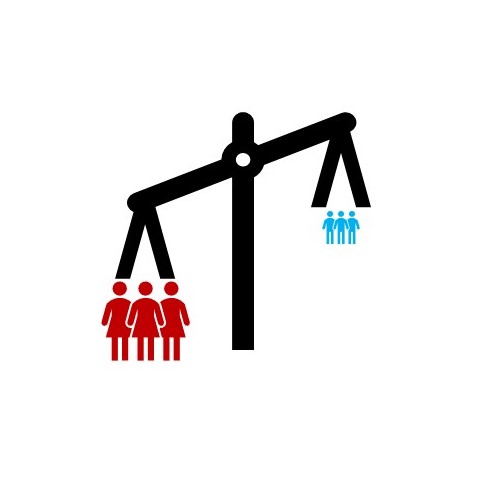
The belief that men are now the primary victims of gender discrimination — what we call “belief in sexism shift” — is growing. How do perceptions of changes to a hierarchy that places men over women affect people’s behavior?
Belief in sexism shift: defining and measuring perceptions of anti-male discrimination
Zehnter, M., Manzi, F., Shrout, P., & Heilman, M. E. (2021). Belief in sexism shift: Defining a new form of contemporary sexism and introducing the belief in sexism shift scale (BSS scale). PLOS ONE. https://doi.org/10.1371/journal.pone.0248374
The belief that the target of sexism has shifted from women to men is gaining popularity. Yet despite its potential theoretical and practical importance, the belief that men are now the primary target of sexism has not been systematically defined nor has it been reliably measured. In this paper, we define the belief in sexism shift (BSS) and introduce a scale to measure it. We contend that BSS constitutes a new form of contemporary sexism characterized by the perception that anti-male discrimination is pervasive, that it now exceeds anti-female discrimination, and that it is caused by women’s societal advancement. In four studies (N = 666), we develop and test a concise, one-dimensional, 15-item measure of BSS: the BSS scale. Our findings demonstrate that BSS is related to, yet distinct from other forms of sexism (traditional, modern, and ambivalent sexism). Moreover, our results show that the BSS scale is a stable and reliable measure of BSS across different samples, time, and participant gender. The BSS scale is also less susceptible to social desirability concerns than other sexism measures. In sum, the BSS scale can be a valuable tool to help understand a new and potentially growing type of sexism that may hinder women in unprecedented ways.
Data and syntax available at: https://osf.io/2dgte/
Does it pay to be(have like) a “Queen Bee”?
Manzi, F., Derks, B., & Ryan, M. (in prep). Choosing women to maintain inequality: Men’s preference for Queen Bees.
Although traditionally masculine women are seen as competent leaders, they are also seen as interpersonally hostile, and therefore disliked. As a result, female leaders are often negatively evaluated and discriminated against. In a series of experimental studies, we examine the conditions under which men might support – rather than punish – women who present themselves in a traditionally masculine way and distance themselves from other women (i.e., Queen Bees). We find that, when the gender hierarchy is threatened, men show a tendency to favor female (vs. male) leaders who present themselves as masculine and as opposing diversity initiatives for women (e.g., affirmative action).